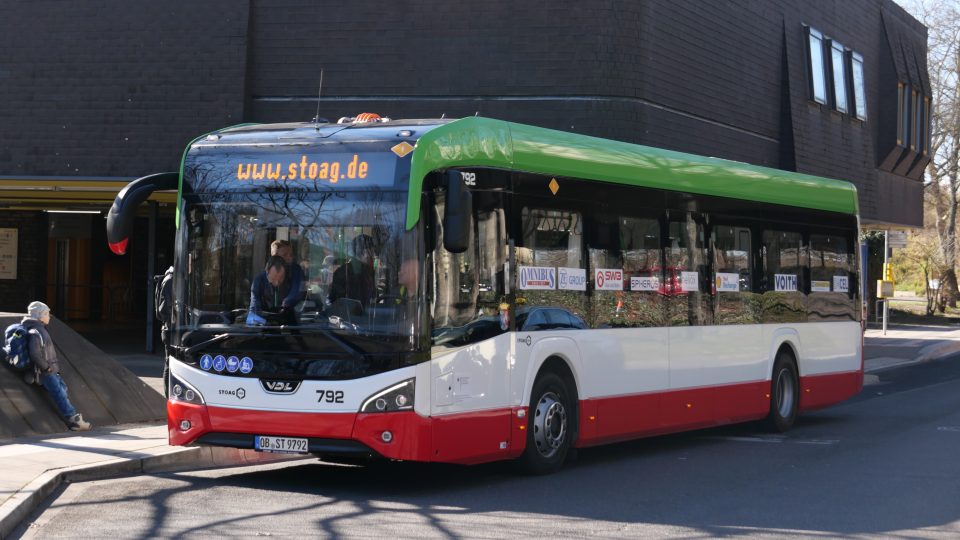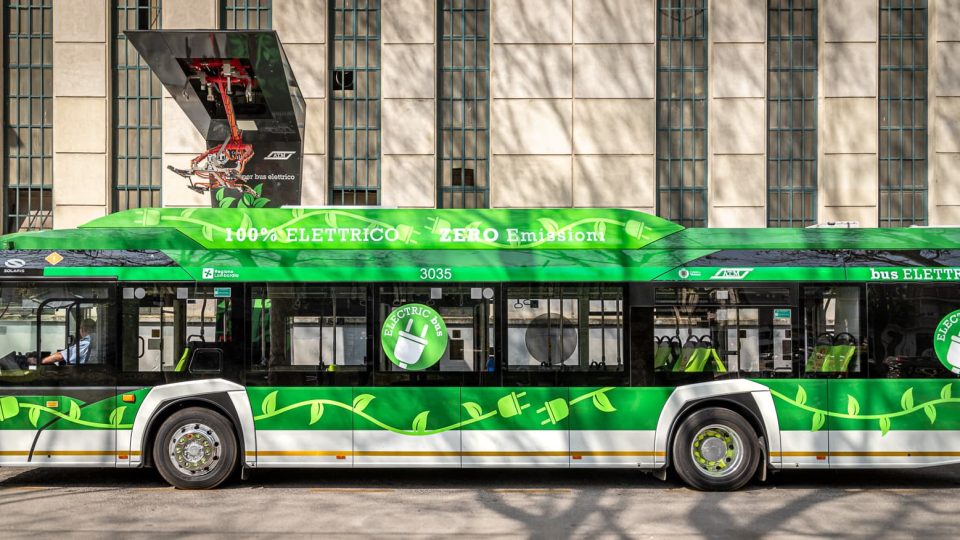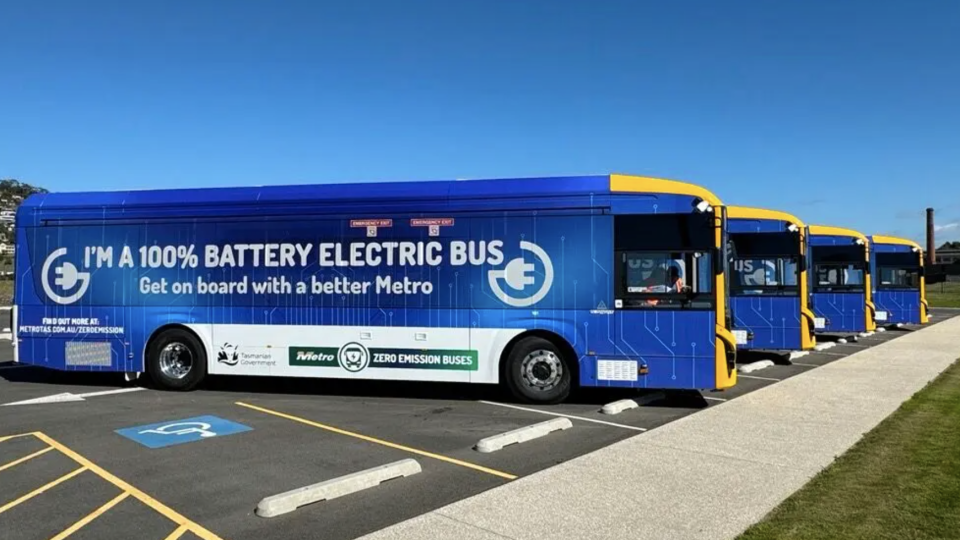Solaris hydrogen bus headed to Sweden. Two vehicles for Transdev in Sandviken
Transdev has signed a contract with Solaris Bus & Coach to supply two hydrogen buses. The vehicles will roll out onto the streets of the Swedish city of Sandviken in autumn 2021. They’ll be the first hydrogen buses to be operated on the Swedish public transport system. Transdev signing the contract with Solaris for the supply of two hydrogen buses is a result of the region’s long-term transport strategy. Sandviken is a nearly […]
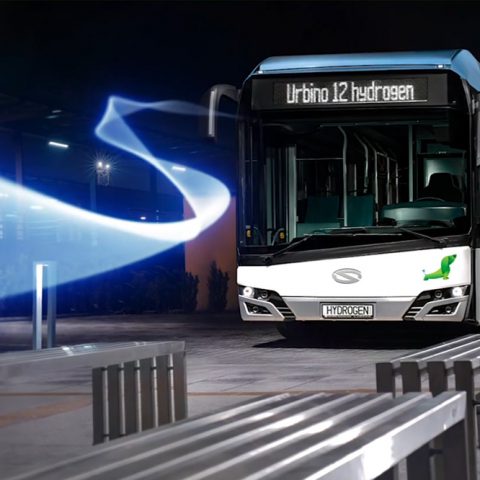
Transdev has signed a contract with Solaris Bus & Coach to supply two hydrogen buses. The vehicles will roll out onto the streets of the Swedish city of Sandviken in autumn 2021. They’ll be the first hydrogen buses to be operated on the Swedish public transport system.
Transdev signing the contract with Solaris for the supply of two hydrogen buses is a result of the region’s long-term transport strategy. Sandviken is a nearly 25,000 strong town located in the Swedish region of Gävleborg, which has lately been betting on eco-friendly solutions.
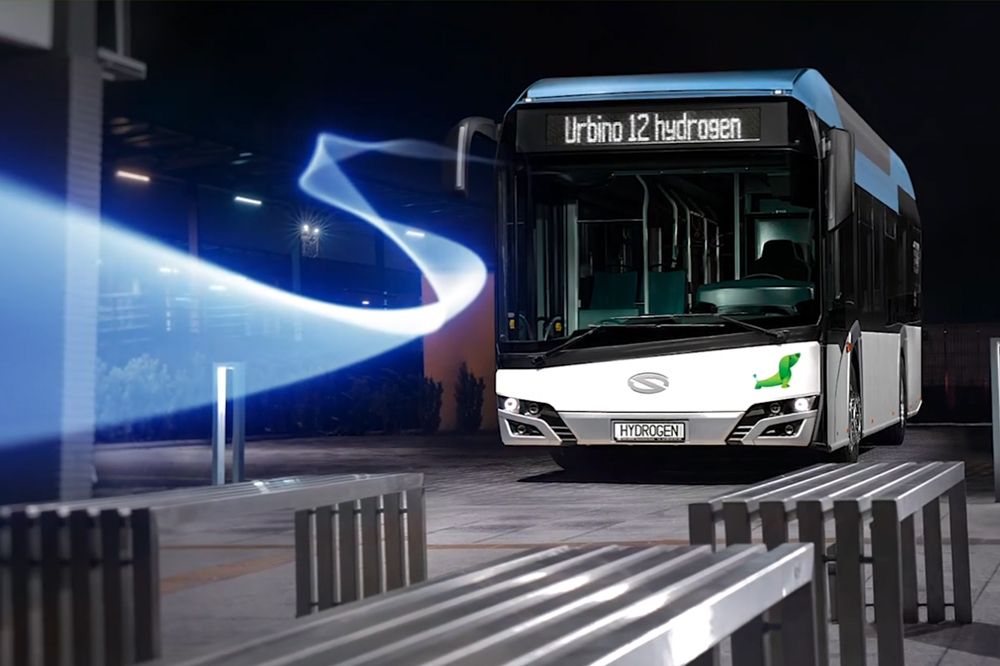
The first hydrogen buses in Sweden (in Sandviken)
The Urbino 12 hydrogen buses for Sandviken are fuelled with power generated by 70 kW fuel cell. They will be driven by an axle with electric motors. Besides that, the ordered vehicles will be fitted with Solaris High Power battery acting as an additional electric power storage facility. In hydrogen buses, electric power is generated via reverse electrolysis and then transferred directly to the driveline. The sole by-products of the chemical reaction taking place in the fuel cell are heat and steam.
As for hydrogen storage technology, the Urbino 12 hydrogen bus features cutting-edge solutions. The hydrogen is stored in gaseous form in five tanks, mounted on the bus roof, boasting a total capacity of 1560 l.
Transdev to operate two hydrogen buses in Sweden
The ordered vehicles can accommodate 85 people. Passengers will be able to board through doors arranged in a 2-2-0 layout. Air conditioning, CCTV cameras, and a modern passenger information system will ensure the safety of travellers. Passengers will be able to recharge their mobile phones using USB ports and use wireless Internet on board. For persons with reduced mobility, a wheelchair bay is envisaged. In addition, the buses will be fitted with the so-called Scandinavian package, i.e. additional equipment and thermal insulation elements, specifically designed so that the bus can face low temperatures and ensure the travel comfort of passengers and the driver even in the coldest of winters.
The ordered Solaris Urbino 12 hydrogen buses will be the first hydrogen buses to be operated by Swedish public transport. However, e-buses made by Solaris have wended their way through Sweden’s streets for over 6 years now. The partnership between Solaris and Swedish operators dates back to 2003. Since then, Solaris has supplied its customers in Sweden with over 600 vehicles, the vast majority of which are low- or emission-free vehicles.
Sandviken on a green path
“Gävleborg is seizing the initiative regarding the green transition. It is being underlined both at a national and European level that hydrogen is crucial in the transition to electrified transport, and Gävleborg, with its local and regional firms, can boast particularly favourable conditions in this regard. The green transition must proceed much faster than it is now, so it is obvious that we will spur its development and test this technology”, says Eva Lindberg, chairwoman of the District Council for the region of Gävleborg.
“It is amazing to be able to implement this new technology in Sandviken. The buses will offer even more travel comfort to passengers and will contribute to cleaner air and lower noise levels throughout the town. This is also a step forward for the whole region of Gävleborg”, says Johnny Struwe, fleet manager at Transdev Sverige AB.
“Solaris has been committed to e-mobile solutions for many years now, focussing on the future of public transport. The first electric bus made by Solaris was delivered to Sweden back in 2014. Now we deliver the first hydrogen bus. We feel honoured that the region of Gävleborg and operator Transdev have trusted our experience and opted for Solaris solutions. This order is an important and strategic breakthrough in the implementation of the latest generation of electric buses of the future”, says Klaus Hansen, Managing Director of Solaris Sverige AB.



